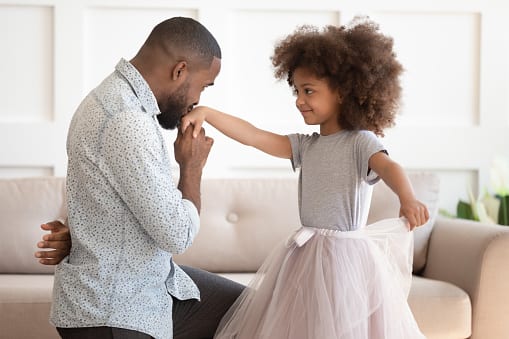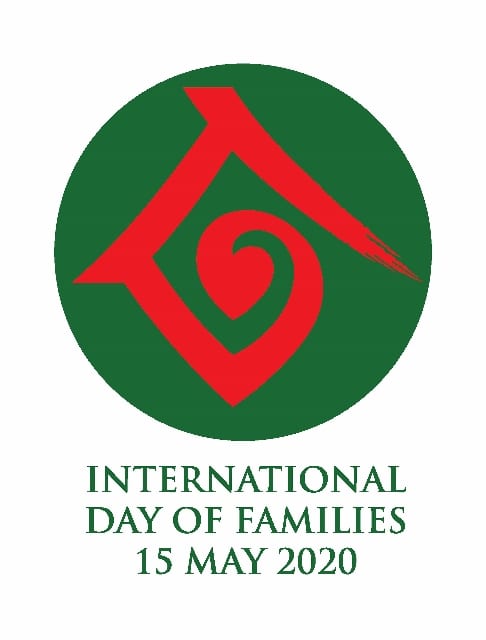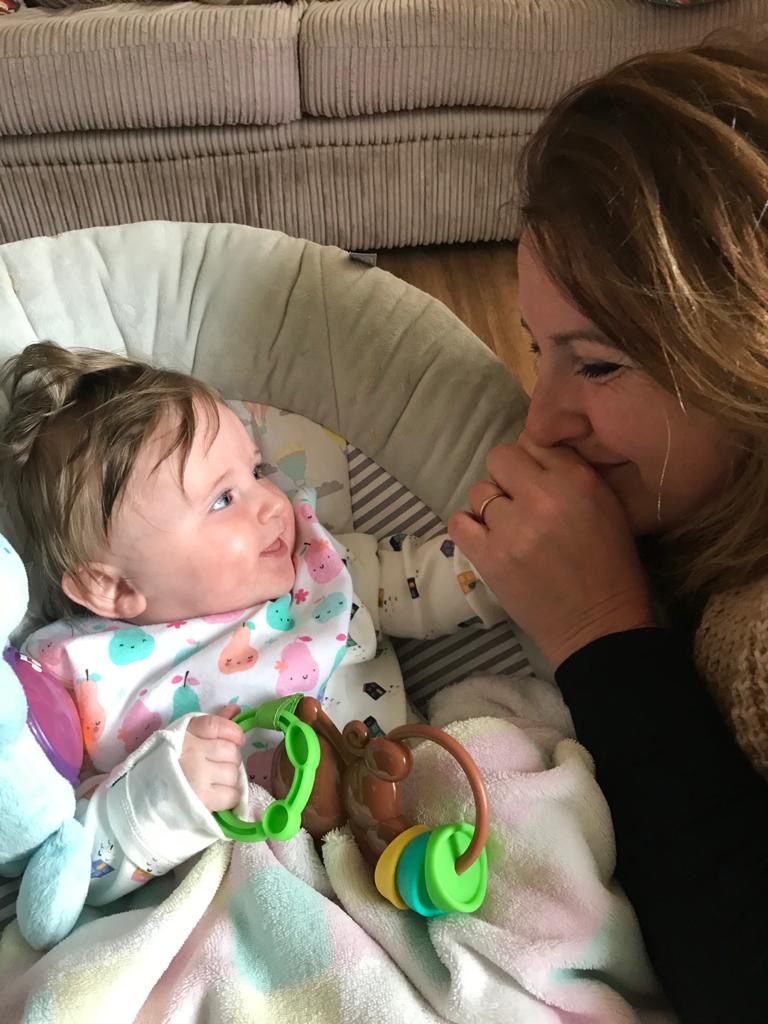Authentic grandparents who actively engage with their children and grandchildren establish a foundation of security and hope for the younger generations that can’t be found elsewhere.
Grandpa had a boat and regularly took me and the rest of his large family out for rides and on water-skiing trips. These were fun memories, but one boating memory stands out above all others.
Grandpa always drove the boat fast, unless Grandma was onboard. But, even though we were speeding across the water I always felt safe with Grandpa at the wheel. There was something so strong and secure about my WWII veteran grandfather that made me want to follow him anywhere and listen to anything he said.
After a long day of boating we begged Grandpa for “one last ride” out on the lake. So, Grandpa consented and ended up on the lake alone with three small children. Then it happened. The boat stopped dead in the middle of the large lake. Grandpa looked at our three worried faces and said, “Don’t worry. It’s probably something small. I’ll see if I can fix it.”
This put me instantly at ease because I had seen Grandpa fix the boat and other things countless times. After about 15 minutes of tinkering with the engine, Grandpa casually said, “I don’t have what I need to fix this problem out here in the lake. So, we will need to get to shore the old fashioned way; rowing.” (Cell phones weren’t a thing at this time.)
As if nothing happened, Grandpa confidently led us to open the lower compartment and locate two oars that he kept for “special occasions” in the bottom of the boat. He assured us that we would start rowing, but that it wouldn’t be long before someone saw us and could tow us back to the harbor.
Grandpa saw the worry on our faces. We were small and we knew we couldn’t row very well so high up above the water. He said, “We are prepared. We don’t need to fear. We will say a prayer and then work with all our mights, and God will do the rest.”
We prayed with Grandpa in that speedboat with the darkness falling all around us and hoped that we would be found.
Time went by and more darkness came. It seemed like the answer to our prayer was taking a long time to come. Grandpa reassured us. “The Lord hears our prayers. Don’t worry.” So, we kept rowing.
Within minutes of Grandpa showing us his great faith in God, a boat light came into view and we had someone to help us to shore.
Grandpa taught me that God answers prayers. He talked about it, showed it, and trusted in it right in front of me. My life was changed by the deliberate example of great faith that Grandpa showed.
Our Current Situation
Today’s youth need authentic people in their lives. In this time of culture wars, increased emotional and familial instability, and political discrimination, even within families, youth need the grounding influence of people who have seen more and know how to weather storms and pick themselves up after a fall and during social instability; authentic grandparents.
Unfortunately, many youth have been groomed by the media to think anyone who is old, or who isn’t as savvy with technology as they are, is not relevant. The alternate reality many young people are living has turned their hearts against the generations of people who have lived authentic lives and learned authentic truths that could transform their lives.
Authentic Grandparents
Many grandparents cheer for the successes of their grandchildren and go to sporting matches and dance performances. But, authentic grandparents go beyond supporting. They impart wisdom and actively influence their families for good. They embrace their unique roles in society as elders and focus more upon imparting true wisdom than on chasing after the fountain of youth.
Authentic means to have “genuine original authority” to not be false or counterfeit, and to be true. Grandparents who embrace deliberately instructing their grandchildren and giving wisdom when required or inspired to give it are staying true to the original authority to share experience that comes with being a grandparent. In contrast, grandparents who just spoil grandchildren and repeat the rhetoric of these times without focusing on truth or wisdom are acting the grandparent part, but not showing the authentic grandparent heart. Even if their opinions are not popular, grandparents who share their ideas with the grandchildren show integrity and open-mindedness.
Grandchildren usually know that their grandparents love them and would do anything to help them, so when wisdom drops from their lips, many grandchildren are more likely to hear those words with understanding and gratitude, or at least open-mindedness. In a world of conflicting views and closed-minded conversations, grandparents have a unique and powerful influence. They can show their grandchildren through love and wisdom that hearing other opinions is okay and can even be safe. Grandchildren of authentic loving grandparents often have more security and confidence in who they are because they are fed light and knowledge from a loving fountain of life experience and have a deeper connection to their familial identity.
Teaching More This Year
My grandparents had get-togethers for every occasion that they could think of. But, they didn’t just stop at getting together. They made every family occasion an opportunity to establish meaningful family traditions and to teach deep and lasting truths.
When we had Thanksgiving, the table was always set with 5 kernels of corn on each plate as a reminder of what the Pilgrims ate before the bountiful harvest. We then did a First Thanksgiving play that centered on the Mayflower Compact and the faith of the Pilgrims and charity of the Natives. These traditions taught us to love our country and to adopt good characteristics.
For Christmas we always got together and had a talent show to have a time to support each other and to get to know each other better. We also had a Christmas play about the Savior full of spiritual memories. Grandma and Grandpa always showed their love for the Savior by testifying to me of their love and gratitude for Him. I could feel the deep love in their hearts and knew that I needed to learn about Jesus myself.
No matter if it was Mother’s Day or St. Patrick’s Day, there was special food, fun, and more testimony and words of wisdom from Grandma and Grandpa. The faith, wisdom, and character of my grandparents was predictable and stable-feeling. As I look at what my life has become, and who I have become, as well as the lives of all my cousins, I see how that stability has led us all to become the kind of people who share wisdom when we meet together and who strive to make the world a better place, just like Grandma and Grandpa did. When grandparents authentically share their hearts and wisdom with their grandchildren, they don’t just leave a legacy of wisdom, but of security and purpose, too.
Now, when I see my parents set aside time at family functions for a spiritual lesson or a moment about a lesson they’ve learned in life, I’m so pleased. I want my children, and now even my grandchildren, to see the authentically good grandparents and great grandparents they have. I want them to see an example worth striving to become like. So, I encourage my parents and my husband’s parents to go deeper and talk more to my children.
This generation of young people is bombarded with confusing voices from all sides of current debates and social and political battles. Life often feels scary and unstable. As so many children are battling insecurity and uncertainty, it’s obvious to me that one of our youth’s greatest needs is to have a hopeful vision of how to get through hard times and practical wisdom that leads to strength and problem-solving. These are treasures that truly authentic grandparents can provide. Grandparenting is not about filling in for parents; it’s about helping parents by being the voice of truth and wisdom no matter if grandparents live nearby or send love by cards and emails.
As a brand-new grandma to my beloved Clara, I only hope that I will have the courage to be as authentic of a grandma as my dear grandparents were to me.
Your children and grandchildren will love these books this Christmas that teach self-government skills and family unity. Start teaching now.












